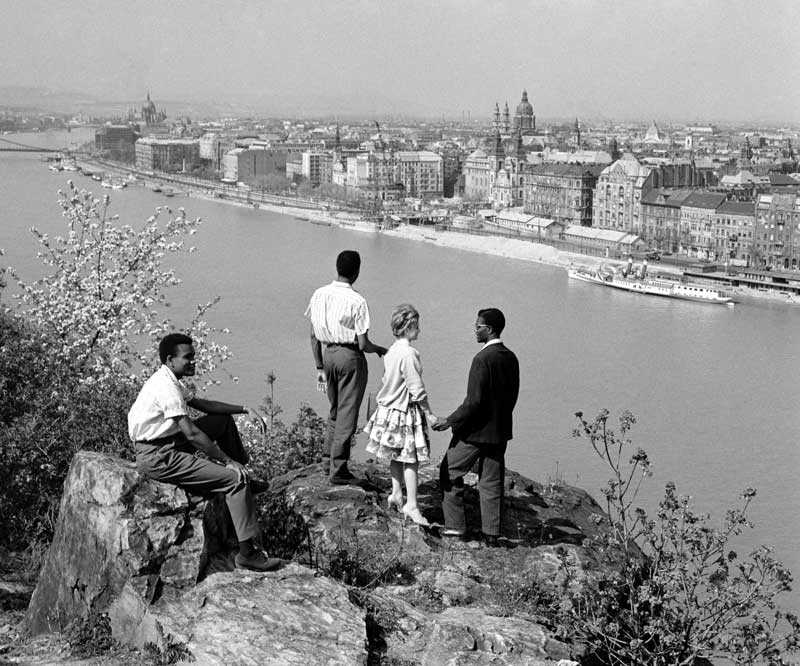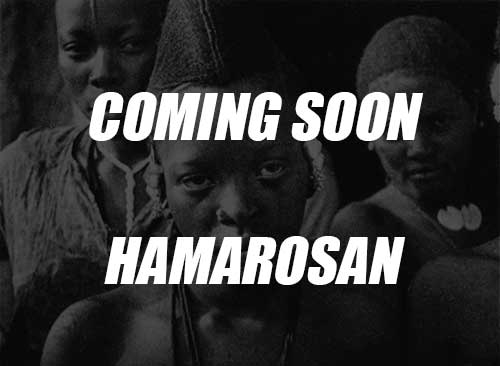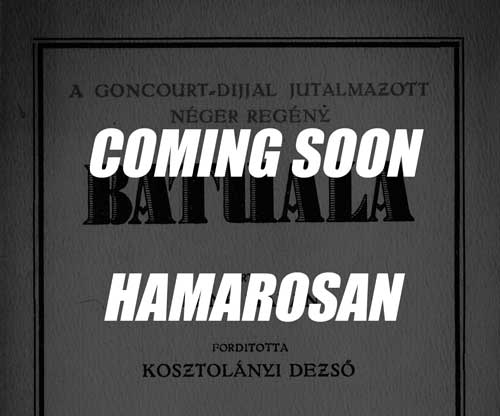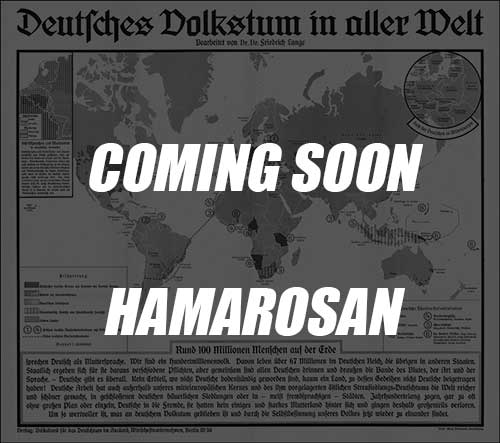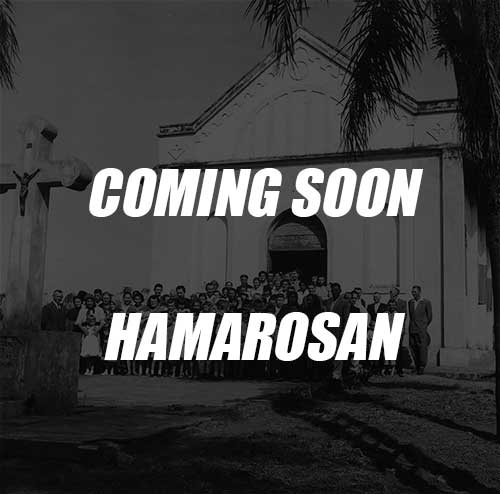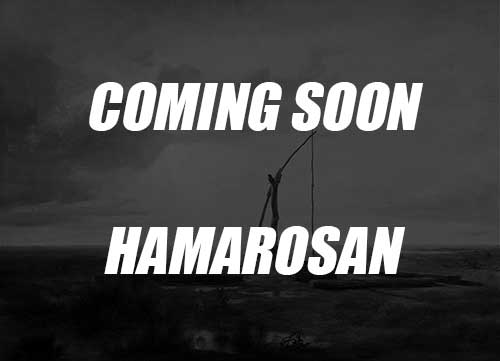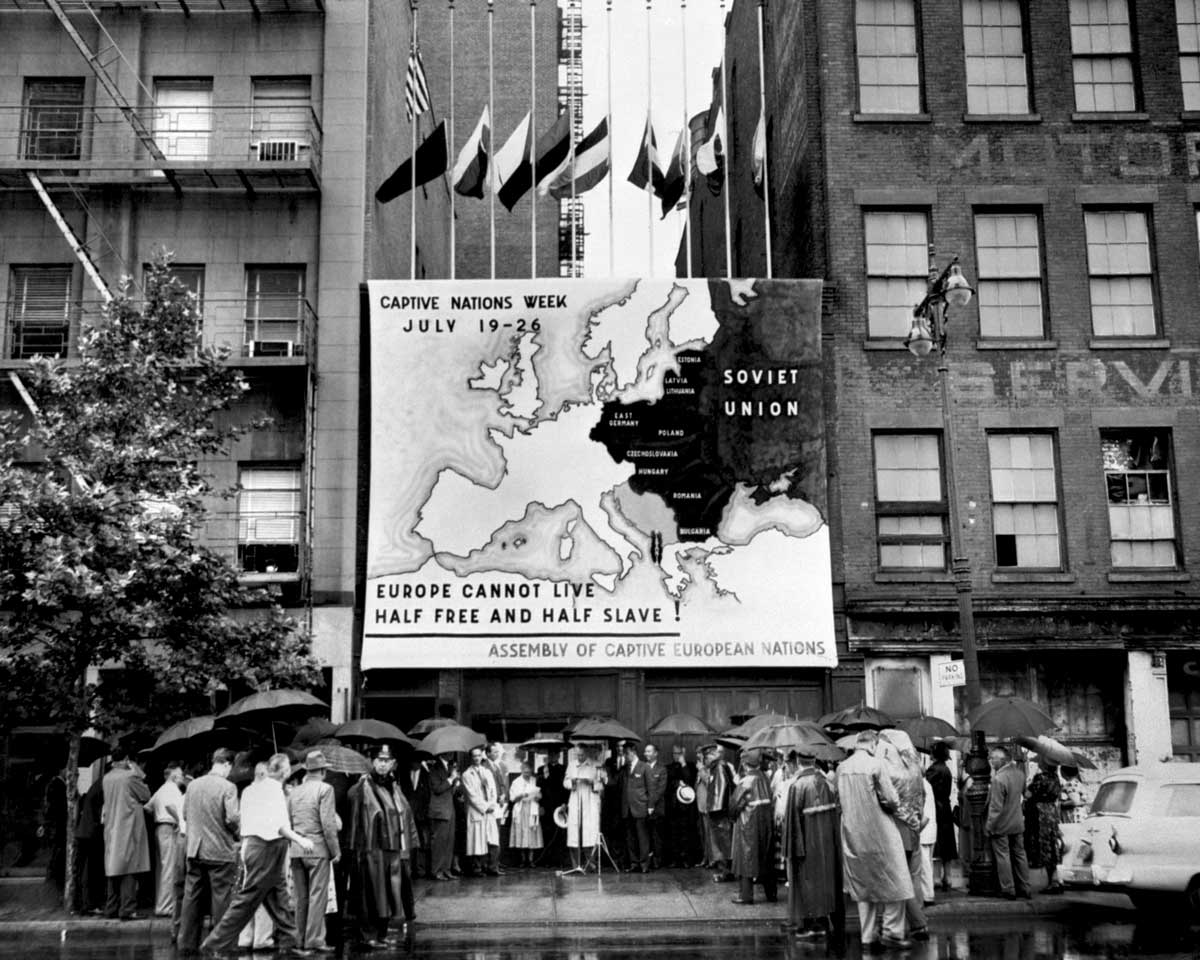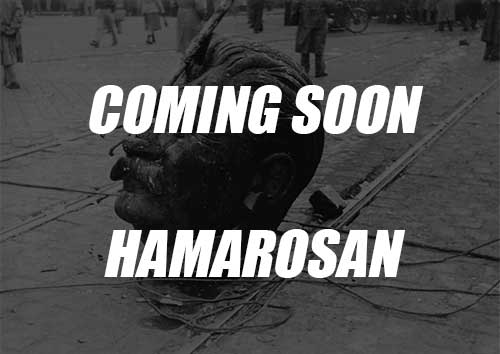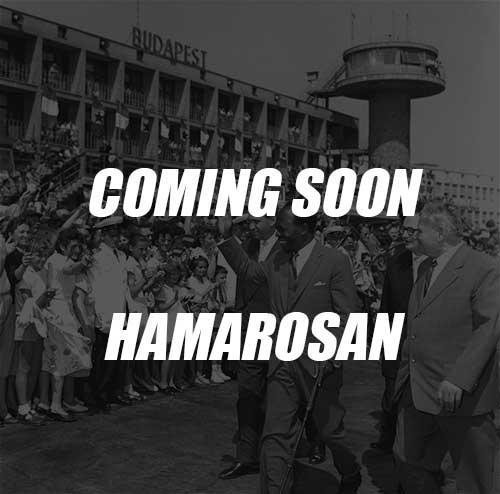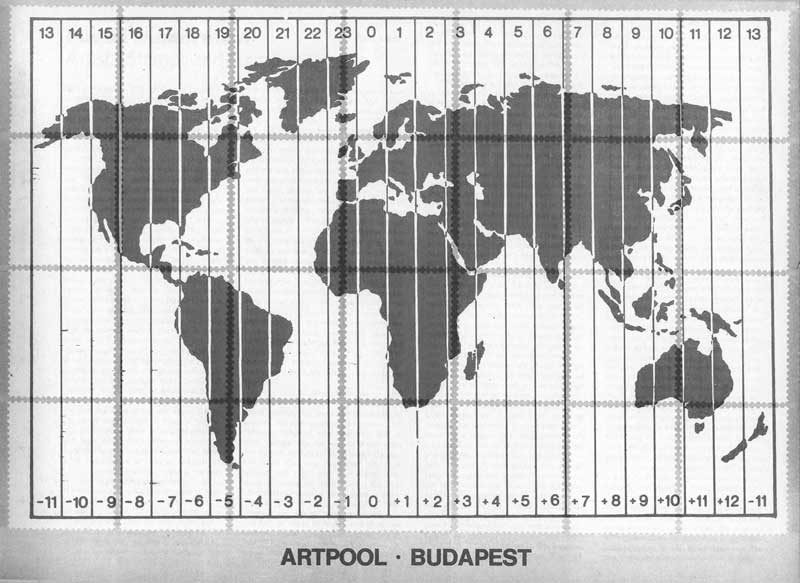Opening Speech of Indonesian President Sukarno
Bandung, 18 April 1955
Your Excellencies, Ladies and Gentlemen, Sisters and Brothers.
It is my great honour and privilege on this historic day to bid you welcome to Indonesia. On behalf of the people and government of Indonesia – your hosts – I beg your understanding and forbearance if some circumstances in our country do not meet your expectation. We have, I assure you, done our best to make your stay amongst us memorable for both our guests and your hosts. We hope that the warmth of our welcome will compensate for whatever material shortcomings there may be.
As I survey this hall and the distinguished guests gathered here, my heart is filled with emotion. This is the first intercontinental conference of coloured peoples in the history of mankind! I am proud that my country is your host. I am happy that you were able to accept the invitations extended by the Five Sponsoring Countries. But also I cannot restrain feelings of sadness when I recall the tribulations through which many of our peoples have so recently passed, tribulations which have exacted a heavy toll in life, in material things, and in the things of the spirit.
I recognise that we are gathered here today as a result of sacrifices. Sacrifices made by our forefathers and by the people of our own and younger generations. For me, this hall is filled not only by the leaders of the nations of Asia and Africa; it also contains within its walls the undying, the indomitable, the invincible spirit of those who went before us. Their struggle and sacrifice paved the way for this meeting of the highest representatives of independent and sovereign nations from two of the biggest continents of the globe.
It is a new departure in the history of the world that leaders of Asian and African peoples can meet together in their own countries to discuss and deliberate upon matters of common concern. Only a few decades ago it was frequently necessary to travel to other countries and even other continents before the spokesmen of our peoples could confer.
I recall in this connection the Conference of the "League Against Imperialism and Colonialism" which was held in Brussels almost thirty years ago. At that Conference many distinguished Delegates who are present here today met each other and found new strength in their fight for independence.
But that was a meeting place thousands of miles away, amidst foreign people, in a foreign country, in a foreign continent. It was not assembled there by choice, but by necessity.
Today the contrast is great. Our nations and countries are colonies no more. Now we are free, sovereign and independent. We are again masters in our own house. We do not need to go to other continents to confer.
Already there have been important meetings of Asian States in Asia itself.
If we look for the forerunner of this our great gathering, we must look to Colombo, capital of independent Çri Lanka, and to the Conference of the five Prime Ministers which was held there in 1954. And the Bogor Conference in December 1954 showed that the road ahead was clear for Asian-African solidarity, and the Conference to which I have the honour of welcoming you today is the realisation of that solidarity.
Indeed, I am proud that my country is your host.
But my thoughts are not wholly of the honour which is Indonesia's today. No. My mind is for a part darkened by other considerations.
You have not gathered together in a world of peace and unity and cooperation. Great chasms yawn between nations and groups of nations. Our unhappy world is torn and tortured, and the peoples of all countries walk in fear lest, through no fault of theirs, the dogs of war are unchained once again.
And if in spite of all that the peoples may do, this should happen. What then? What of our newly-recovered independence then? What of our children and our parents?
The burden of the delegates to this Conference is not a light one, for I know that these questions – which are questions of the life or death of humanity itself – must be on your minds, as they are on mine. And the nations of Asia and Africa cannot, even if they wish to, avoid their part in finding solutions to these problems.
For that is part of the duties of independence itself. That is part of the price we gladly pay for our independence. For many generations our peoples have been the voiceless ones in the world. We have been the unregarded, the peoples for whom decisions were made by others whose interests were paramount, the peoples who lived in poverty and humiliation. Then our nations demanded, nay fought for independence, and achieved independence, and with that independence came responsibility. We have heavy responsibilities to ourselves, and to the world, and to the yet unborn generations. But we do not regret them.
In 1945, the first year of our national revolution, we of Indonesia were confronted with the question of what we were going to do with our independence when it was finally attained and secured – we never questioned that it would be attained and secured. We knew how to oppose and destroy. Then we were suddenly confronted with the necessity of giving content and meaning to our independence. Not material content and meaning only, but also ethical and moral content, for independence without ethics and without morality would be indeed a poor imitation of what we sought. The responsibilities and burdens, the rights and duties and privileges of independence must be seen as part of the ethical and moral content of independence.
Indeed, we welcome the change which places new burdens upon us, and we are all resolved to exert all our strength and courage in carrying these burdens.
Sisters and Brothers, how terrifically dynamic is our time! I recall that, several years ago, I had occasion to make a public analysis of colonialism, and that I then drew attention to what I called the "Life-line of Imperialism". This line runs from the Straits of Gibraltar, through the Mediterranean, the Suez Canal, the Red Sea, the Indian Ocean, the South China Sea and the Sea of Japan. For most of that enormous distance, the territories on both sides of this lifeline were colonies, the peoples were unfree, their futures mortgaged to an alien system. Along that life-line, that main artery of imperialism, there was pumped the life-blood of colonialism. And today in this hall are gathered together the leaders of those same peoples. They are no longer the victims of colonialism. They are no longer the tools of others and the playthings of forces they cannot influence. Today, you are representatives of free peoples, peoples of a different stature and standing in the world.
Yes, there has indeed been a "Sturm über Asien" - and over Africa too. The last few years have seen enormous changes. Nations, States, have awoken from a sleep of centuries. The passive peoples have gone, the outward tranquility has made place for struggle and activity. Irresistible forces have swept the two continents. The mental, spiritual and political face of the whole world has been changed, and the process is still not complete. There are new conditions, new concepts, new problems, new ideals abroad in the world. Hurricanes of national awakening and reawakening have swept over the land, shaking it, changing it, changing it for the better.
This twentieth century has been a period of terrific dynamism. Perhaps the last fifty years have seen more developments and more material progress than the previous five hundred years. Man has learned to control many of the scourges which once threatened him. He has learned to consume distance. He has learned to project his voice and his picture across oceans and continents. He has probed deep into the secrets of nature and learned how to make the desert bloom and the plants of the earth increase their bounty. He has learned how to release the immense forces locked in the smallest particles of matter.
But has man's political skill marched hand-in-hand with his technical and scientific skill? Man can chain lightning to his command - can he control the society in which he lives? The answer is No! The political skill of man has been far outstripped by technical skill, and what he has made he cannot be sure of controlling.
The result of this is fear. And man gasps for safety and morality.
Perhaps now more than at any other moment in the history of the world, society, government and statesmanship need to be based upon the highest code of morality and ethics. And in political terms, what is the highest code of morality? It is the subordination of everything to the well-being of mankind. But today we are faced with a situation where the well-being of mankind is not always the primary consideration. Many who are in places of high power think, rather, of controlling the world.
Yes, we are living in a world of fear. The life of man today is corroded and made bitter by fear. Fear of the future, fear of the hydrogen bomb, fear of ideologies. Perhaps this fear is a greater danger than the danger itself, because it is fear which drives men to act foolishly, to act thoughtlessly, to act dangerously.
In your deliberations, Sisters and Brothers, I beg of you, do not be guided by these fears, because fear is an acid which etches man's actions into curious patterns. Be guided by hopes and determination, be guided by ideals, and, yes, be guided by dreams!
We are of many different nations, we are of many different social backgrounds and cultural patterns. Our ways of life are different. Our national characters, or colours or motifs – call it what you will – are different. Our racial stock is different, and even the colour of our skin is different. But what does that matter? Mankind is united or divided by considerations other than these. Conflict comes not from variety of skins, nor from variety of religion, but from variety of desires.
All of us, I am certain, are united by more important things than those which superficially divide us. We are united, for instance, by a common detestation of colonialism in whatever form it appears. We are united by a common detestation of racialism. And we are united by a common determination to preserve and stabilise peace in the world. Are not these aims mentioned in the letter of invitation to which you responded?
I freely confess it – in these aims I am not disinterested or driven by purely impersonal motives.
How is it possible to be disinterested about colonialism? For us, colonialism is not something far and distant. We have known it in all its ruthlessness. We have seen the immense human wastage it causes, the poverty it causes, and the heritage it leaves behind when, eventually and reluctantly, it is driven out by the inevitable march of history. My people, and the peoples of many nations of Asia and Africa know these things, for we have experienced them.
Indeed, we cannot yet say that all parts of our countries are free already. Some parts still labour under the lash. And some parts of Asia and Africa which are not represented here still suffer from the same condition.
Yes, some parts of our nations are not yet free. That is why all of us cannot yet feel that journey's end has been reached. No people can feel themselves free, so long as part of their motherland is unfree. Like peace, freedom is indivisible. There is no such thing as being half free, as there is no such thing as being half alive.
We are often told "Colonialism is dead". Let us not be deceived or even soothed by that. I say to you, colonialism is not yet dead. How can we say it is dead, so long as vast areas of Asia and Africa are unfree.
And, I beg of you do not think of colonialism only in the classic form which we of Indonesia, and our brothers in different parts of Asia and Africa, knew. Colonialism has also its modern dress, in the form of economic control, intellectual control, actual physical control by a small but alien community within a nation. It is a skilful and determined enemy, and it appears in many guises. It does not give up its loot easily. Wherever, whenever and however it appears, colonialism is an evil thing, and one which must be eradicated from the earth.
The battle against colonialism has been a long one, and do you know that today is a famous anniversary in that battle? On the eighteenth day of April, one thousand seven hundred and seventy five, just one hundred and eighty years ago, Paul Revere rode at midnight through the New England countryside, warning of the approach of British troops and of the opening of the American War of Independence, the first successful anti-colonial war in history. About this midnight ride the poet Longfellow wrote:
A cry of defiance and not of fear,
A voice in the darkness, a knock at the door,
And a word that shall echo for evermore.
Yes, it shall echo for evermore, just as the other anti-colonial words which gave us comfort and reassurance during the darkest days of our struggle shall echo for evermore. But remember, that battle which began 180 years ago is not yet completely won, and it will not have been completely won until we can survey this our own world, and can say that colonialism is dead.
So, I am not disinterested when I speak of the fight against colonialism.
Nor am I disinterested when I speak of the battle for peace. How can any of us be disinterested about peace?
Not so very long ago we argued that peace was necessary for us because an outbreak of fighting in our part of the world would imperil our precious independence, so recently won at such great cost.
Today, the picture is more black. War would not only mean a threat to our independence, it may mean the end of civilisation and even of human life. There is a force loose in the world whose potentiality for evil no man truly knows. Even in practice and rehearsal for war the effects may well be building up into something of unknown horror.
Not so long ago it was possible to take some little comfort from the idea that the clash, if it came, could perhaps be settled by what were called "conventional weapons" – bombs, tanks, cannon and men. Today that little grain of comfort is denied us for it has been made clear that the weapons of ultimate horror will certainly be used, and the military planning of nations is on that basis. The unconventional has become the conventional, and who knows what other examples of misguided and diabolical scientific skill have been discovered as a plague on humanity.
And do not think that the oceans and the seas will protect us. The food that we eat, the water that we drink, yes, even the very air that we breathe can be contaminated by poisons originating from thousands of miles away. And it could be that, even if we ourselves escaped lightly, the unborn generations of our children would bear on their distorted bodies the marks of our failure to control the forces which have been released on the world.
No task is more urgent than that of preserving peace. Without peace our independence means little. The rehabilitation and upbuilding of our countries will have little meaning. Our revolutions will not be allowed to run their course.
What can we do? The peoples of Asia and Africa wield little physical power. Even their economic strength is dispersed and slight. We cannot indulge in power politics. Diplomacy for us is not a matter of the big stick. Our statesmen, by and large, are not backed up with serried ranks of jet bombers.
What can we do? We can do much! We can inject the voice of reason into world affairs. We can mobilise all the spiritual, all the moral, all the political strength of Asia and Africa on the side of peace. Yes, we! We, the peoples of Asia and Africa, 1,400,000,000 strong, far more than half the human population of the world, we can mobilise what I have called the Moral Violence of Nations in favour of peace. We can demonstrate to the minority of the world which lives on the other continents that we, the majority, are for peace, not for war, and that whatever strength we have will always be thrown on to the side of peace.
In this struggle, some success has already been scored. I think it is generally recognised that the activity of the Prime Ministers of the Sponsoring Countries which invited you here had a not unimportant role to play in ending the fighting in Indo-China.
Look, the peoples of Asia raised their voices, and the world listened. It was no small victory and no negligible precedent! The five Prime Ministers did not make threats. They issued no ultimatum, they mobilised no troops. Instead they consulted together, discussed the issues, pooled their ideas, added together their individual political skills and came forward with sound and reasoned suggestions which formed the basis for a settlement of the long struggle in Indo-China.
I have often since then asked myself why these five were successful when others, with long records of diplomacy, were unsuccessful, and, in fact, had allowed a bad situation to get worse, so that there was a danger of the conflict spreading. Was it because they were Asians? Maybe that is part of the answer, for the conflagration was on their doorstep, and any extension of it would have presented an immediate threat to their own houses. But I think that the answer really lies in the fact that those five Prime Ministers brought a fresh approach to bear on the problem. They were not seeking advantage for their own countries. They had no axe of power-politics to grind. They had but one interest -how to end the fighting in such a way that the chances of continuing peace and stability were enhanced.
That, my Sisters and Brothers, was an historic occasion. Some countries of free Asia spoke, and the world listened. They spoke on a subject of immediate concern to Asia, and in doing so made it quite clear that the affairs of Asia are the concern of the Asian peoples themselves. The days are now long past when the future of Asia can be settled by other and distant peoples.
However, we cannot, we dare not, confine our interests to the affairs of our own continents. The States of the world today depend one upon the other and no nation can be an island unto itself. Splendid isolation may once have been possible; it is so no longer. The affairs of all the world are our affairs, and our future depends upon the solutions found to all international problems, however far or distant they may seem.
As I survey this hall, my thoughts go back to another Conference of Asian peoples. In the beginning of 1949 – historically speaking only a moment ago – my country was for the second time since our Proclamation of Independence engaged in a life and death struggle. Our nation was besieged and beleaguered, much of our territory occupied, a great part of our leaders imprisoned or exiled, our existence as a State threatened.
Issues were being decided, not in the conference chamber, but on the battlefield. Our envoys then were rifles, and cannon, and bombs, and grenades, and bamboo spears. We were blockaded, physically and intellectually.
It was at that sad but glorious moment in our national history that our good neighbour India convened a Conference of Asian and African Nations in New Delhi, to protest against the injustice committed against Indonesia and to give support to our struggle. The intellectual blockade was broken! Our Delegates flew to New Delhi and learned at first hand of the massive support which was being given to our struggle for national existence. Never before in the history of mankind has such a solidarity of Asian and African peoples been shown for the rescue of a fellow Asian Nation in danger. The diplomats and statesmen, the Press and the common men of our Asian and African neighbours were all supporting us. We were given fresh courage to press our struggle onwards to its final successful conclusion. We again realised to the full the truth of Desmoulin's statement: "Have no doubt of the omnipotence of a free people".
Perhaps in some ways the Conference which has assembled here today has some roots in that manifestation of Asian-African solidarity six years ago.
However that may be, the fact remains that every one of you bears a heavy responsibility, and I pray to God that the responsibility will be discharged with courage and wisdom.
I pray to God that this Asian-African Conference succeeds in doing its job.
Ah, Sisters and Brothers, let this Conference be a great success! In spite of diversity that exists among its participants, – let this Conference be a great success!
Yes, there is diversity among us. Who denies it? Small and great nations are represented here, with people professing almost every religion under the sun, – Buddhism, Islam, Christianity, Confucianism, Hinduism, Jainism, Sikhism, Zoroasthrianism, Shintoism, and others. Almost every political faith we encounter here – Democracy, Monarchism, Theocracy, with innumerable variants. And practically every economic doctrine has its representative in this hall - Marhaenism, Socialism, Capitalism, Communism, in all their manifold variations and combinations.
But what harm is in diversity, when there is unity in desire? This Conference is not to oppose each other, it is a conference of brotherhood. It is not an Islam Conference, nor a Christian Conference, nor a Buddhist Conference. It is not a meeting of Malayans, nor one of Arabs, nor one of Indo-Aryan stock. It is not an exclusive club either, not a bloc which seeks to oppose any other bloc. Rather it is a body of enlightened, tolerant opinion which seeks to impress on the world that all men and all countries have their place under the sun – to impress on the world that it is possible to live together, meet together, speak to each other, without losing one's individual identity; and yet to contribute to the general understanding of matters of common concern, and to develop a true consciousness of the interdependence of men and nations for their well-being and survival on earth.
I know that in Asia and Africa there is greater diversity of religions, faiths, and beliefs, than in the other continents of the world. But that is only natural! Asia and Africa are the classic birthplaces of faiths and ideas, which have spread all over the world. Therefore, it behoves us to take particular care to ensure that the principle which is usually called the "Live and let live" principle - mark, I do not say the principle of "Laissez faire, laissez passer" of Liberalism which is obsolete – is first of all applied by us most completely within our own Asian and African frontiers. Then only can it be fully extended to our relations with our neighbouring countries, and to others more distant.
Religion is of dominating importance particularly in this part of the world. There are perhaps more religions here than in other regions of this globe. But, again, our countries were the birthplaces of religions. Must we be divided by the multiformity of our religious life? It is true, each religion has its own history, its own individuality, its own "raison d'être", its special pride in its own beliefs, its own mission, its special truths which it desires to propagate. But unless we realise that all great religions are one in their message of tolerance and in their insistence on the observance of the principle of "Live and let live", unless the followers of each religion are prepared to give the same consideration to the rights of others everywhere, unless every State does its duty to ensure that the same rights are given to the followers of all faiths – unless these things are done, religion is debased, and its true purpose perverted. Unless Asian-African countries realise their responsibilities in this matter and take steps jointly to fulfil them, the very strength of religious beliefs, which should be a source of unity and a bulwark against foreign interference, will cause its disruption, and may result in destroying the hardwon freedom which large parts of Asia and Africa have achieved by acting together.
Sisters and Brothers, Indonesia is Asia-Africa in small. It is a country with many religions and many faiths. We have in Indonesia Moslims, we have Christians, we have Civa-Buddhists, we have peoples with other creeds. Moreover, we have many ethnic units, such as Achenese, Bataks, Central-Sumatrans, Sundanese, Central Javanese, Madurese, Toradjas, Balinese, etc. But thank God, we have our will to unity. We have our Pancha Sila. We practise the "Live and let live" principle, we are tolerant to each other. Bhinneka Tunggal Ika – Unity in Diversity – is the motto of the Indonesian State. We are one nation.
So, let this Asian-African Conference be a great success! Make the "Live and let live" principle and the "Unity in Diversity" motto the unifying force which brings us all together – to seek in friendly, uninhibited discussion, ways and means by which each of us can live his own life, and let others live their own lives, in their own way, in harmony, and in peace.
If we succeed in doing so, the effect of it for the freedom, independence and the welfare of man will be great on the world at large. The Light of Understanding has again been lit, the Pillar of Cooperation again erected.
The likelihood of success of this Conference is proved already by the very presence of you all here today. It is for us to give it strength, to give it the power of inspiration – to spread its message all over the World.
Failure will mean that the Light of Understanding which seemed to have dawned in the East – the Light towards which looked all the great religions born here in the past – has again been obscured by an unfriendly cloud before man could benefit from its warm radiance.
But let us be full of hope and full of confidence. We have so much in common.
Relatively speaking, all of us gathered here today are neighbours. Almost all of us have ties of common experience, the experience of colonialism. Many of us have a common religion. Many of us have common cultural roots. Many of us, the so-called "underdeveloped" nations, have more or less similar economic problems, so that each can profit from the others' experience and help. And I think I may say that we all hold dear the ideals of national independence and freedom. Yes, we have so much in common. And yet we know so little of each other.
If this Conference succeeds in making the peoples of the East whose representatives are gathered here understand each other a little more, appreciate each other a little more, sympathise with each other's problems a little more – if those things happen, then this Conference, of course, will have been worthwhile, whatever else it may achieve. But I hope that this Conference will give more than understanding only and goodwill only –I hope that it will falsify and give the lie to the saying of one diplomat from far abroad: "We will turn this Asian-African Conference into an afternoon-tea meeting". I hope that it will give evidence of the fact that we Asian and African leaders understand that Asia and Africa can prosper only when they are united, and that even the safety of the World at large can not be safeguarded without a united Asia-Africa. I hope that this Conference will give guidance to mankind, will point out to mankind the way which it must take to attain safety and peace. I hope that it will give evidence that Asia and Africa have been reborn, nay, that a New Asia and a New Africa have been born!
Our task is first to seek an understanding of each other, and out of that understanding will come a greater appreciation of each other, and out of that appreciation will come collective action. Bear in mind the words of one of Asia's greatest sons: "To speak is easy. To act is hard. To understand is hardest. Once one understands, action is easy".
I have come to the end. Under God, may your deliberations be fruitful, and may your wisdom strike sparks of light from the hard flints of today's circumstances. Let us not be bitter about the past, but let us keep our eyes firmly on the future.
Let us remember that no blessing of God is so sweet as life and liberty. Let us remember that the stature of all mankind is diminished so long as nations or parts of nations are still unfree. Let us remember that the highest purpose of man is the liberation of man from his bonds of fear, his bonds of human degradation, his bonds of poverty - the liberation of man from the physical, spiritual and intellectual bonds which have for too long stunted the development of humanity's majority.
And let us remember, Sisters and Brothers, that for the sake of all that, we Asians and Africans must be united.
As President of the Republic of Indonesia, and on behalf of the eighty million people of Indonesia, I bid you welcome to this country. I declare the Asian-African Conference opened, and I pray that the Blessing of God will be upon it, and that its discussions will be profitable to the peoples of Asia and Africa, and to the peoples of all nations!
Bismillah!
God speed!
Sukarno indonéz elnök megnyitó beszéde
Bandung, 1955. április 18.
Őexcellenciáim, Hölgyeim és Uraim, Nővéreim és Testvéreim.
Nagy megtiszteltetés és kiváltság számomra, hogy ezen a történelmi napon köszönthetem Önöket Indonéziában. Indonézia népe és kormánya – az Önök vendéglátói – nevében kérem megértésüket és elnézésüket, ha országunkban néhány körülmény nem felel meg az Önök elvárásainak. Biztosíthatom Önöket, hogy mindent megtettünk annak érdekében, hogy az Önök közöttünk való tartózkodása mind vendégeink, mind vendéglátóink számára emlékezetes legyen. Reméljük, hogy a szívélyes fogadtatásunk kompenzálja az esetleges anyagi hiányosságokat.
Ahogy végigmérem ezt a termet és az itt összegyűlt kiváló vendégeket, a szívem megtelik érzelmekkel. Ez a színesbőrű népek első interkontinentális konferenciája az emberiség történetében! Büszke vagyok arra, hogy hazám a házigazdájuk. Boldog vagyok, hogy Önök képesek voltak elfogadni az öt támogató ország által küldött meghívást. De nem tudom visszafogni a szomorúság érzését sem, amikor felidézem azokat a megpróbáltatásokat, amelyeken népünk közül sokan a közelmúltban keresztülmentek, megpróbáltatásokat, amelyek súlyos áldozatokat követeltek az életben, az anyagi dolgokban és a lélek dolgaiban.
Elismerem, hogy áldozatok eredményeként gyűltünk ma itt össze. Áldozatokat hoztak elődeink, a mi és a fiatalabb generációk. Számomra ezt a termet nemcsak Ázsia és Afrika népeinek vezetői töltik meg; falai között ott van az előttünk járók halhatatlan, fékezhetetlen, legyőzhetetlen szelleme is. Az ő küzdelmük és áldozatvállalásuk egyengette az utat a világ két legnagyobb kontinensének független és szuverén nemzeteinek legfőbb képviselői találkozójához.
A világ történetében új kezdet, hogy az ázsiai és afrikai népek vezetői saját országukban találkozhatnak, hogy megvitassák és megvitassák a közös érdekű kérdéseket. Csak néhány évtizeddel ezelőtt gyakran más országokba, sőt más kontinensekre kellett utazni ahhoz, hogy népeink szóvivői tanácskozhassanak.
Ezzel kapcsolatban felidézem a "Liga az imperializmus és a gyarmatosítás ellen" konferenciáját, amelyet majdnem harminc évvel ezelőtt Brüsszelben tartottak. Azon a konferencián sok kiváló küldött, akik ma itt vannak, találkoztak egymással, és új erőt merítettek a függetlenségért folytatott harcukban.
De ez a találkozó több ezer mérföldre volt, idegen emberek között, idegen országban, idegen kontinensen. Nem önszántukból gyűltek ott össze, hanem kényszerűségből.
Ma nagy a kontraszt. Nemzeteink és országaink már nem gyarmatok. Most szabadok, szuverének és függetlenek vagyunk. Újra urak vagyunk a saját házunkban. Nem kell más kontinensekre mennünk tanácskozni.
Az ázsiai államok már most is fontos találkozókat tartottak Ázsiában.
Ha ennek a mi nagy találkozónknak az előfutárát keressük, akkor Colombóra, a független Srí Lanka fővárosára és az öt miniszterelnök 1954-ben ott tartott konferenciájára kell tekintenünk. Az 1954 decemberében tartott bogori konferencia megmutatta, hogy az ázsiai-afrikai szolidaritás útja szabaddá vált, és a konferencia, amelyen ma van szerencsém üdvözölni Önöket, ennek a szolidaritásnak a megvalósulása.
Valóban büszke vagyok arra, hogy hazám az Önök házigazdája.
De gondolataim nem csak arra a megtiszteltetésre irányulnak, amely ma Indonéziát illeti. Nem. Az elmémet részben más megfontolások sötétítik el.
Önök nem a béke, az egység és az együttműködés világában gyűltek össze. Nagy szakadékok tátonganak a nemzetek és nemzetcsoportok között. Szerencsétlen világunk megtépázott és megkínzott, és minden ország népei félelemben járnak, nehogy - önhibájukon kívül - a háború kutyái ismét elszabaduljanak.
És ha a népek mindannak ellenére, amit tehetnek, ez mégis megtörténik. Mi lesz akkor? Mi lesz akkor a frissen visszanyert függetlenségünkkel? Mi lesz gyermekeinkkel és szüleinkkel?
A konferencia küldötteinek terhe nem könnyű, mert tudom, hogy ezek a kérdések - amelyek az emberiség életének vagy halálának kérdései - az Önök fejében is ott vannak, ahogy az enyémben is. És Ázsia és Afrika nemzetei nem kerülhetik el, még ha akarják is, a maguk részét e problémák megoldásának megtalálásában.
Ez ugyanis része magának a függetlenségnek a feladatai közé tartozik. Ez része annak az árnak, amelyet szívesen fizetünk függetlenségünkért. Sok generáción keresztül a mi népeink voltak a hangtalanok a világban. Mi voltunk a figyelmen kívül hagyott népek, azok a népek, akik számára a döntéseket mások hozták meg, akiknek az érdekei voltak a legfontosabbak, azok a népek, akik szegénységben és megaláztatásban éltek. Aztán nemzeteink függetlenséget követeltek, sőt harcoltak a függetlenségért, és el is érték azt, és ezzel a függetlenséggel felelősség is járt. Súlyos felelősségünk van önmagunkkal, a világgal és a még meg nem született nemzedékekkel szemben. De nem bánjuk őket.
1945-ben, nemzeti forradalmunk első évében mi, indonéziaiak szembesültünk azzal a kérdéssel, hogy mit fogunk kezdeni a függetlenségünkkel, amikor azt végre elnyertük és biztosítottuk - soha nem kérdőjeleztük meg, hogy el fogjuk nyerni és biztosítani fogjuk. Tudtuk, hogyan kell ellenállni és pusztítani. Aztán hirtelen szembesültünk azzal, hogy függetlenségünknek tartalmat és értelmet kell adnunk. Nem csak anyagi tartalmat és értelmet, hanem etikai és erkölcsi tartalmat is, mert a függetlenség etika és erkölcs nélkül valóban gyenge utánzata lenne annak, amit kerestünk. A függetlenség felelősségét és terheit, jogait, kötelességeit és kiváltságait a függetlenség etikai és erkölcsi tartalmának részeként kell felfognunk.
Valóban üdvözöljük a változást, amely új terheket ró ránk, és mindannyian el vagyunk határozva, hogy minden erőnket és bátorságunkat latba vetjük e terhek viselésében.
Nővérek és testvérek, milyen rettenetesen dinamikus a mi időnk! Emlékszem, hogy néhány évvel ezelőtt volt alkalmam nyilvánosan elemezni a gyarmatosítást, és akkor felhívtam a figyelmet arra, amit "az imperializmus életvonalának" neveztem. Ez a vonal a Gibraltári-szorostól a Földközi-tengeren, a Szuezi-csatornán, a Vörös-tengeren, az Indiai-óceánon, a Dél-kínai-tengeren és a Japán-tengeren keresztül húzódik. Ennek a hatalmas távolságnak a nagy részében az életvonal mindkét oldalán lévő területek gyarmatok voltak, a népek nem voltak szabadok, jövőjüket egy idegen rendszerre tették jelzálogba. Ezen az életvonal mentén, az imperializmus fő ütőerén a gyarmatosítás éltető vére folyt. És ma ebben a teremben ugyanezen népek vezetői gyűltek össze. Ők már nem a gyarmatosítás áldozatai. Többé már nem mások eszközei, és nem olyan erők játékszerei, amelyeket nem tudnak befolyásolni. Önök ma szabad népek képviselői, olyan népeké, amelyeknek más a rangjuk és a helyük a világban.
Igen, valóban volt egy "Sturm über Asien" - és Afrika felett is. Az elmúlt néhány évben óriási változások történtek. Nemzetek, államok ébredtek fel évszázados álmukból. A passzív népek eltűntek, a külső nyugalom helyet adott a küzdelemnek és az aktivitásnak. Ellenállhatatlan erők söpörtek végig a két kontinensen. Az egész világ szellemi, lelki és politikai arculata megváltozott, és a folyamat még mindig nem fejeződött be. Új körülmények, új fogalmak, új problémák, új eszmék vannak külföldön a világban. A nemzeti ébredés és újjáébredés hurrikánjai végigsöpörtek az országon, megrázva, megváltoztatva, jobbra változtatva azt.
Ez a huszadik század a félelmetes dinamizmus időszaka volt. Az elmúlt ötven év talán több fejlődést és nagyobb anyagi haladást hozott, mint az azt megelőző ötszáz év. Az ember megtanult úrrá lenni sok olyan csapáson, amelyek egykoron fenyegették. Megtanult távolságot fogyasztani. Megtanulta, hogy hangját és képét óceánokon és kontinenseken keresztül vetítse. Mélyre hatolt a természet titkaiba, és megtanulta, hogyan lehet a sivatagot virágzóvá tenni, a föld növényeit pedig szaporítani. Megtanulta, hogyan szabadítsa fel az anyag legapróbb részecskéibe zárt hatalmas erőket.
De vajon az ember politikai képességei kéz a kézben haladtak-e technikai és tudományos képességeivel? Az ember villámokat tud a parancsnokságához láncolni - vajon tudja-e irányítani a társadalmat, amelyben él? A válasz: nem! Az ember politikai ügyessége messze meghaladta a technikai ügyességet, és amit létrehozott, azt nem tudja biztosan irányítani.
Ennek eredménye a félelem. Az ember pedig biztonságért és erkölcsért kapkod.
Talán most jobban, mint a világtörténelem bármely más pillanatában, a társadalomnak, a kormánynak és az államvezetésnek a legmagasabb erkölcsi és etikai kódexen kell alapulnia. És politikai szempontból mi a legmagasabb erkölcsi kódex? Az, hogy mindent az emberiség jólétének rendelünk alá. Ma azonban olyan helyzettel állunk szemben, ahol nem mindig az emberiség jóléte az elsődleges szempont. Sokan, akik magas hatalmi pozíciókban vannak, inkább a világ irányítására gondolnak.
Igen, a félelem világában élünk. A mai ember életét a félelem korrodálja és keseríti meg. Félelem a jövőtől, félelem a hidrogénbombától, félelem az ideológiáktól. Talán ez a félelem nagyobb veszély, mint maga a veszély, mert a félelem az, ami az embereket arra készteti, hogy ostobán, meggondolatlanul, veszélyesen cselekedjenek.
Kérlek benneteket, nővéreim és testvéreim, hogy a tanácskozásotokban ne ezek a félelmek vezessenek benneteket, mert a félelem olyan sav, amely az ember cselekedeteit furcsa mintákba vési. Vezessenek benneteket a remények és az elszántság, vezessenek benneteket az eszmék, és igen, vezessenek benneteket az álmok!
Sok különböző nemzetből származunk, sok különböző társadalmi háttérrel és kulturális mintával rendelkezünk. Különbözőek az életmódjaink. Nemzeti karaktereink, színeink vagy motívumaink - nevezzük, aminek akarjuk - különbözőek. Más a faji állományunk, és még a bőrünk színe is más. De mit számít ez? Az emberiséget más szempontok is egyesítik vagy megosztják, mint ezek. A konfliktus nem a bőr különbözőségéből, nem is a vallás különbözőségéből, hanem a vágyak különbözőségéből ered.
Biztos vagyok benne, hogy mindannyiunkat fontosabb dolgok kötnek össze, mint azok, amelyek felületesen elválasztanak minket. Egyesít bennünket például a gyarmatosítás közös gyűlölete, bármilyen formában is jelenjen meg. Közös bennünket a fajgyűlölet közös gyűlölete. És összeköt bennünket az a közös elhatározás, hogy megőrizzük és stabilizáljuk a békét a világban. Ezek a célok nem szerepelnek a meghívólevélben, amelyre Ön válaszolt?
Szabadon bevallom - e célok tekintetében nem vagyok érdektelen, és nem pusztán személytelen indítékok vezérelnek.
Hogyan lehet önzetlen a gyarmatosítással kapcsolatban? Számunkra a gyarmatosítás nem valami távoli és távoli dolog. A maga kegyetlenségében ismertük meg. Láttuk az általa okozott mérhetetlen emberi pazarlást, az általa okozott szegénységet, és az örökséget, amelyet hátrahagy, amikor végül és vonakodva elűzi a történelem elkerülhetetlen menetelése. Az én népem, és Ázsia és Afrika számos nemzetének népe ismeri ezeket a dolgokat, mert mi megtapasztaltuk őket.
Valóban, még nem mondhatjuk, hogy országaink minden része már szabad. Néhány részük még mindig a korbács alá van szorítva. És Ázsia és Afrika egyes részei, amelyek itt nem képviseltetik magukat, még mindig ugyanebben az állapotban szenvednek.
Igen, nemzeteink egyes részei még nem szabadok. Ezért nem érezhetjük még mindannyian, hogy az út végére értünk. Egyetlen nép sem érezheti magát szabadnak, amíg szülőföldjének egy része nem szabad. A békéhez hasonlóan a szabadság is oszthatatlan. Nincs olyan, hogy félig szabad, ahogyan olyan sincs, hogy félig él.
Gyakran mondják nekünk, hogy "a gyarmatosítás halott". Ne hagyjuk magunkat becsapni vagy akár megnyugtatni ezzel. Azt mondom nektek, a gyarmatosítás még nem halt meg. Hogyan mondhatnánk, hogy halott, amíg Ázsia és Afrika hatalmas területei nem szabadok.
És kérem önöket, ne csak a klasszikus formában gondoljanak a gyarmatosításra, amelyet mi, indonéziaiak és testvéreink Ázsia és Afrika különböző részein ismertünk. A gyarmatosításnak van modern ruhája is, a gazdasági ellenőrzés, az intellektuális ellenőrzés, a tényleges fizikai ellenőrzés formájában, amelyet egy kis, de idegen közösség gyakorol egy nemzeten belül. Ez egy ügyes és elszánt ellenség, és sokféle alakban jelenik meg. Nem adja fel könnyen a zsákmányt. Bárhol, bármikor és bárhogyan jelenik meg, a gyarmatosítás gonosz dolog, amelyet ki kell irtani a földről.
A gyarmatosítás elleni harc hosszú küzdelem volt, és tudják, hogy a mai nap ennek a harcnak egy jeles évfordulója? Ezerhétszázhetvenöt áprilisának tizennyolcadik napján, éppen száznyolcvan évvel ezelőtt Paul Revere éjfélkor végiglovagolt New England vidékén, figyelmeztetve a brit csapatok közeledtére és az amerikai függetlenségi háború, a történelem első sikeres gyarmatellenes háborújának kezdetére. Erről az éjféli lovaglásról a költő Longfellow így írt:
A dac kiáltása, nem a félelemé,
Egy hang a sötétségben, kopogás az ajtón,
És egy szó, amely örökké visszhangzik.
Igen, ez a szó örökké fog visszhangozni, ahogyan a többi gyarmatellenes szó is örökké fog visszhangozni, amelyek vigaszt és megnyugvást adtak nekünk harcunk legsötétebb napjaiban. De ne feledjük, hogy a 180 évvel ezelőtt kezdődött harcot még nem nyertük meg teljesen, és nem is fogjuk teljesen megnyerni, amíg nem tudjuk felmérni ezt a saját világunkat, és nem mondhatjuk, hogy a gyarmatosítás halott.
Nem vagyok tehát érdektelen, amikor a gyarmatosítás elleni harcról beszélek.
Nem vagyok érdektelen akkor sem, amikor a békéért folytatott harcról beszélek. Hogyan lehet bármelyikünk is érdektelen a békével kapcsolatban?
Nem is olyan régen még azzal érveltünk, hogy a békére szükségünk van, mert a harcok kitörése a mi világrészünkön veszélyeztetné a nemrég nagy árakon kivívott értékes függetlenségünket.
Ma már sokkal sötétebb a kép. A háború nemcsak függetlenségünk veszélyeztetését jelentené, hanem a civilizáció, sőt az emberi élet végét is. Egy olyan erő van a világban, amelynek gonoszságra való alkalmasságát senki sem ismeri igazán. Még a háború gyakorlása és próbája során is felgyorsulhatnak a hatások, és valami ismeretlen borzalomba torkollhatnak.
Nem is olyan régen még némi megnyugvást jelentett az a gondolat, hogy az összecsapást, ha bekövetkezik, talán "hagyományos fegyverekkel" - bombákkal, tankokkal, ágyúkkal és emberekkel - lehet megoldani. Ma már ez a kis vigasztalás is elmarad, mert világossá vált, hogy a végső borzalom fegyvereit biztosan be fogják vetni, és a nemzetek katonai tervezése ezen az alapon történik. A nem hagyományosból hagyományos lett, és ki tudja, hogy a félresikerült és ördögi tudományos ügyességnek még milyen példáit fedezték fel az emberiség csapásaként.
És ne higgyük, hogy az óceánok és a tengerek megvédnek minket. Az étel, amit eszünk, a víz, amit iszunk, igen, még a levegő is, amit belélegzünk, több ezer kilométerről származó mérgekkel szennyezett lehet. És lehet, hogy még ha mi magunk meg is ússzuk meg könnyedén, gyermekeink meg nem született nemzedékei torz testükön viselik majd annak nyomait, hogy nem tudtuk megfékezni a világra szabadult erőket.
Nincs sürgősebb feladat, mint a béke megőrzése. Béke nélkül függetlenségünk keveset ér. Országaink helyreállításának és felépítésének kevés értelme lesz. Forradalmainkat nem hagyjuk lezajlani.
Mit tehetünk? Ázsia és Afrika népei kevés fizikai erővel rendelkeznek. Még gazdasági erejük is szétszórt és csekély. Nem engedhetünk a hatalmi politikának. A diplomácia számunkra nem a nagy botról szól. Államférfiainkat, nagyjából, nem támogatják sugárhajtású bombázók sorai.
Mit tehetünk? Sokat tehetünk! Be tudunk szólni a józan ész hangján a világ ügyeibe. Mozgósíthatjuk Ázsia és Afrika minden szellemi, erkölcsi és politikai erejét a béke érdekében. Igen, mi! Mi, Ázsia és Afrika népei, 1.400.000.000.000 ember, a világ népességének jóval több mint a fele, mozgósíthatjuk azt, amit én a nemzetek erkölcsi erejének neveztem a béke érdekében. Meg tudjuk mutatni a világ azon kisebbségének, amely a többi kontinensen él, hogy mi, a többség, a békéért, nem a háborúért vagyunk, és hogy bármilyen erőnk is van, azt mindig a béke oldalára fogjuk állítani.
Ebben a harcban már most is van némi siker. Azt hiszem, általánosan elismert, hogy a támogató országok miniszterelnökeinek tevékenysége, amely meghívta Önöket ide, nem elhanyagolható szerepet játszott az indokínai harcok befejezésében.
Nézzék, Ázsia népei felemelték a hangjukat, és a világ meghallgatta őket. Ez nem kis győzelem és nem elhanyagolható precedens volt! Az öt miniszterelnök nem fenyegetőzött. Nem adtak ki ultimátumot, nem mozgósítottak csapatokat. Ehelyett közösen konzultáltak, megvitatták a kérdéseket, egyesítették ötleteiket, összeadták egyéni politikai képességeiket, és olyan megalapozott és átgondolt javaslatokkal álltak elő, amelyek az indokínai hosszú küzdelem rendezésének alapját képezték.
Azóta gyakran feltettem magamnak a kérdést, hogy miért voltak sikeresek ezek öten, amikor mások, akik hosszú diplomáciai múlttal rendelkeztek, sikertelenek voltak, és valójában hagyták, hogy a rossz helyzet tovább romoljon, így fennállt a konfliktus továbbterjedésének veszélye. Talán azért, mert ázsiaiak voltak? Talán ez is része a válasznak, hiszen a tűzvész a küszöbükön volt, és annak bármilyen kiterjedése közvetlen veszélyt jelentett volna a saját házaikra. De úgy gondolom, hogy a válasz valójában abban rejlik, hogy ez az öt miniszterelnök új megközelítést alkalmazott a problémára. Nem a saját országuk számára kerestek előnyt. Nem a hatalmi-politikai szempontok vezérelték őket. Egyetlen érdekük volt: hogyan lehet úgy véget vetni a harcoknak, hogy a folyamatos béke és stabilitás esélyei javuljanak.
Ez, nővéreim és testvéreim, történelmi esemény volt. A szabad Ázsia néhány országa megszólalt, és a világ meghallgatta. Olyan témáról beszéltek, amely Ázsiát közvetlenül érinti, és ezzel világossá tették, hogy Ázsia ügyei maguknak az ázsiai népeknek a gondjai. Már régen elmúltak azok a napok, amikor Ázsia jövőjét más és távoli népek rendezhetik.
Azonban nem tudjuk, nem merjük érdekeinket saját kontinensünk ügyeire korlátozni. A világ államai ma egymásra vannak utalva, és egyetlen nemzet sem lehet önmagáért való sziget. Valaha talán lehetséges volt a csodálatos elszigeteltség, de ma már nem az. Az egész világ ügyei a mi ügyeink, és a jövőnk attól függ, hogy milyen megoldásokat találunk minden nemzetközi problémára, bármilyen távolinak vagy távolinak tűnjenek is azok.
Miközben végignézem ezt a termet, gondolataim az ázsiai népek egy másik konferenciájára térnek vissza. 1949 elején – történelmileg nézve csak egy pillanattal ezelőtt – hazám a függetlenségünk kikiáltása óta másodszor is élet-halál harcban állt. Nemzetünket ostromolták és ostrom alá vették, területünk nagy részét megszállták, vezetőink nagy részét bebörtönözték vagy száműzték, államként való létezésünket veszélyeztették.
A kérdések nem a tárgyalóteremben, hanem a csatatéren dőltek el. A mi követeink akkor puskák, ágyúk, bombák, gránátok és bambuszlándzsák voltak. Blokkoltak bennünket, fizikailag és intellektuálisan.
Nemzeti történelmünk e szomorú, de dicsőséges pillanatában volt az, amikor jó szomszédunk, India összehívta az ázsiai és afrikai nemzetek konferenciáját Újdelhiben, hogy tiltakozzon az Indonézia ellen elkövetett igazságtalanság ellen, és támogassa küzdelmünket. A szellemi blokádot áttörték! Küldötteink Újdelhibe repültek, és első kézből értesültek arról a hatalmas támogatásról, amelyet nemzeti létünkért folytatott küzdelmünknek nyújtottak. Az emberiség történetében még soha nem volt példa arra, hogy az ázsiai és afrikai népek ilyen szolidaritást tanúsítsanak egy veszélyben lévő ázsiai nemzet megmentése érdekében. Ázsiai és afrikai szomszédaink diplomatái és államférfiúi, a sajtó és a közemberek mind támogattak bennünket. Új bátorságot kaptunk, hogy küzdelmünket a végső sikeres befejezésig folytassuk. Ismét teljes mértékben felismertük Desmoulin kijelentésének igazságát: "Ne kételkedjünk a szabad nép mindenhatóságában".
A ma itt összegyűlt konferencia bizonyos szempontból talán az afroázsiai szolidaritás hat évvel ezelőtti megnyilvánulásában gyökerezik.
Bárhogy is legyen, tény, hogy mindannyian súlyos felelősséget viselnek, és imádkozom Istenhez, hogy ezt a felelősséget bátran és bölcsen teljesítsék.
Imádkozom Istenhez, hogy ez az ázsiai-afrikai konferencia sikeresen végezze a munkáját.
Á, Nővéreim és Testvéreim, legyen ez a konferencia nagy siker! A résztvevők közötti sokféleség ellenére – legyen nagy sikerű ez a konferencia!
Igen, sokszínűség van közöttünk. Ki tagadja ezt? Kisebb és nagyobb nemzetek egyaránt képviseltetik magukat itt, és szinte minden vallást vallanak a nap alatt: buddhizmus, iszlám, kereszténység, konfucianizmus, hinduizmus, dzsainizmus, szikhizmus, zoroasztrizmus, sintóizmus és mások. Szinte minden politikai hit, amellyel itt találkozunk - demokrácia, monarchizmus, teokrácia, számtalan változattal. És gyakorlatilag minden gazdasági tanításnak megvan a képviselője ebben a teremben - marhaenizmus, szocializmus, kapitalizmus, kommunizmus, minden sokféle változatban és kombinációban.
De mi baj van a sokféleséggel, ha a vágyban egység van? Ez a konferencia nem azért van, hogy szembeállítsuk egymást, ez a testvériség konferenciája. Ez nem iszlám konferencia, nem keresztény konferencia, nem buddhista konferencia. Ez nem a malájok, nem az arabok, nem az indo-árja származásúak találkozója. Ez nem egy exkluzív klub sem, nem egy olyan blokk, amely bármely más blokkal szemben akar fellépni. Sokkal inkább egy felvilágosult, toleráns véleményt valló testület, amely arra törekszik, hogy a világot meggyőzze arról, hogy minden embernek és minden országnak megvan a helye a nap alatt - hogy a világot meggyőzze arról, hogy lehetséges együtt élni, együtt találkozni, beszélni egymással anélkül, hogy elveszítenénk egyéni identitásunkat; és mégis hozzájáruljon a közös ügyek általános megértéséhez, és hogy kialakítsa az emberek és nemzetek kölcsönös függőségének valódi tudatát a földi jólét és túlélés érdekében.
Tudom, hogy Ázsiában és Afrikában nagyobb a vallások, hitek és meggyőződések sokfélesége, mint a világ többi kontinensén. De ez csak természetes! Ázsia és Afrika a hitek és eszmék klasszikus szülőhelyei, amelyek az egész világon elterjedtek. Ezért kötelességünk különös gondot fordítani arra, hogy az általában "Élni és élni hagyni" elvnek nevezett elvet - jelzem, nem a liberalizmus elavult "Laissez faire, laissez passer" elvét mondom - mindenekelőtt a saját ázsiai és afrikai határainkon belül alkalmazzuk a legteljesebben. Csak ezután terjeszthető ki teljes mértékben a szomszédos és távolabbi országainkkal való kapcsolatainkra.
A vallás különösen a világnak ebben a részében meghatározó jelentőségű. Itt talán több vallás létezik, mint a földgolyó más régióiban. De ismétlem, a mi országaink voltak a vallások szülőhelyei. Vajon meg kell-e osztania bennünket vallási életünk sokszínűségének? Igaz, minden vallásnak megvan a maga története, a maga egyénisége, a maga "létjogosultsága", a maga sajátos büszkesége a saját hitére, a maga küldetése, a maga sajátos igazságai, amelyeket terjeszteni kíván. De ha nem vesszük észre, hogy minden nagy vallás egy a tolerancia üzenetében és az "Élni és élni hagyni" elvének betartásához való ragaszkodásában, hacsak az egyes vallások követői nem hajlandók mindenütt ugyanolyan figyelmet fordítani mások jogaira, hacsak minden állam nem teszi meg a kötelességét annak biztosítására, hogy minden vallás követői ugyanazokat a jogokat kapják - ha mindezek nem történnek meg, a vallás lealacsonyodik, és valódi célja elferdül. Hacsak az ázsiai-afrikai országok nem ismerik fel felelősségüket ebben a kérdésben, és nem tesznek közös lépéseket ezek teljesítésére, maga a vallási meggyőződés ereje, amelynek az egység forrását és a külföldi beavatkozással szembeni védőbástyát kellene jelentenie, megzavarja azt, és a nehezen kivívott szabadság elpusztításához vezethet, amelyet Ázsia és Afrika nagy részei közös fellépéssel értek el.
Nővéreim és testvéreim, Indonézia egy kis Afroázsia. Sok vallású és sok hitű ország. Indonéziában vannak muszlimok, vannak keresztények, vannak civa-buddhisták, vannak más vallású népek. Továbbá számos etnikai egységünk van, mint például az achenesek, batakok, közép-szumátraiak, szundániaiak, közép-jávaiak, madurézek, toradzsákok, balinézek stb. De hála Istennek, megvan az akaratunk az egységre. Megvan a Pancha Sila. Gyakoroljuk az "Élni és élni hagyni" elvet, toleránsak vagyunk egymással szemben. Bhinneka Tunggal Ika – Egység a sokféleségben – ez az indonéz állam mottója. Egy nemzet vagyunk.
Legyen tehát ez az ázsiai-afrikai konferencia nagy siker! Legyen az "Élni és élni hagyni" elv és az "Egység a sokféleségben" mottó az az egyesítő erő, amely mindannyiunkat összehoz - hogy barátságos, gátlástalan vitában keressük azokat a módokat és eszközöket, amelyekkel mindenki élheti a saját életét, és hagyjuk, hogy mások a saját életüket éljék, a maguk módján, harmóniában és békében.
Ha ez sikerül, akkor ennek az ember szabadságára, függetlenségére és jólétére gyakorolt hatása nagy lesz az egész világon. A megértés fénye ismét meggyulladt, az együttműködés oszlopát ismét felállították.
E konferencia sikerének valószínűségét már az is bizonyítja, hogy ma mindannyian itt vannak. Rajtunk múlik, hogy erőt adjunk neki, hogy az inspiráció erejét adjuk neki - hogy üzenetét az egész világon terjesszük.
A kudarc azt jelentené, hogy a Megértés Fényét, amely úgy tűnt, hogy Keleten felvirradt - a Fényt, amely felé a múltban itt született minden nagy vallás tekintett - ismét elhomályosította egy barátságtalan felhő, mielőtt az ember részesülhetett volna meleg sugárzásából.
De legyünk tele reménnyel és bizalommal. Olyan sok közös van bennünk.
Relatív értelemben mindannyian, akik ma itt összegyűltünk, szomszédok vagyunk. Majdnem mindannyiunkat összeköt a közös tapasztalat, a gyarmatosítás tapasztalata. Sokunknak közös a vallása. Sokunknak vannak közös kulturális gyökerei. Sokunknak, az úgynevezett "elmaradott" nemzeteknek többé-kevésbé hasonló gazdasági problémáik vannak, így mindegyikünk profitálhat a másik tapasztalataiból és segítségéből. És azt hiszem, azt is mondhatom, hogy mindannyiunknak fontos a nemzeti függetlenség és szabadság eszméje. Igen, nagyon sok közös van bennünk. És mégis olyan keveset tudunk egymásról.
Ha ennek a konferenciának sikerül elérnie, hogy a keleti népek, amelyek képviselői itt összegyűltek, egy kicsit jobban megértsék egymást, egy kicsit jobban megbecsüljék egymást, egy kicsit jobban átérezzék egymás problémáit - ha ezek a dolgok megtörténnek, akkor ez a konferencia természetesen megérte, bármi mást is érjen el. De remélem, hogy ez a konferencia többet fog adni, mint csak megértést és jóakaratot - remélem, hogy meg fogja hamisítani és hazudni fogja egy messzi külföldről érkezett diplomata mondását: "Ezt az afroázsiai konferenciát délutáni teázássá fogjuk változtatni". Remélem, hogy bizonyítékot fog adni arra, hogy mi, ázsiai és afrikai vezetők megértettük, hogy Ázsia és Afrika csak akkor boldogulhat, ha egyesül, és hogy még a világ biztonsága sem biztosítható egységes Afroázsia nélkül. Remélem, hogy ez a konferencia útmutatást ad az emberiségnek, rámutat az emberiségnek arra az útra, amelyet a biztonság és a béke eléréséhez meg kell járnia. Remélem, hogy bizonyítékot ad arra, hogy Ázsia és Afrika újjászületett, sőt, hogy egy Új Ázsia és egy Új Afrika született!
A mi feladatunk először is az, hogy igyekezzünk megérteni egymást, és ebből a megértésből következik egymás nagyobb megbecsülése, és ebből a megbecsülésből következik a közös cselekvés. Tartsuk szem előtt Ázsia egyik legnagyobb fiának szavait: "Beszélni könnyű. Cselekedni nehéz. Megérteni a legnehezebb. Ha valaki egyszer megérti, a cselekvés könnyű".
A végére értem. Istenem, legyen gyümölcsöző a tanácskozásotok, és a bölcsességetek szikrákat szórjon a fényre a mai körülmények kemény tégláiból. Ne keseregjünk a múlton, hanem tartsuk tekintetünket szilárdan a jövőre.
Ne feledjük, hogy Isten egyetlen áldása sem olyan édes, mint az élet és a szabadság. Ne feledjük, hogy az egész emberiség rangja csökken mindaddig, amíg a nemzetek vagy nemzetrészek még mindig nem szabadok. Emlékezzünk arra, hogy az ember legmagasabb rendeltetése az embernek a félelem, az emberi lealacsonyodás és a szegénység kötelékei alól való felszabadítása - az embernek a fizikai, szellemi és intellektuális kötelékek alól való felszabadítása, amelyek túl sokáig hátráltatták az emberiség többségének fejlődését.
És ne feledjük, Nővérek és Testvérek, hogy mindezek érdekében nekünk, ázsiaiaknak és afrikaiaknak egyesülnünk kell.
Az Indonéz Köztársaság elnökeként és Indonézia nyolcvanmillió lakosa nevében köszöntöm Önöket ebben az országban. Megnyitottnak nyilvánítom az Ázsiai-Afrikai Konferenciát, és imádkozom, hogy Isten áldása legyen rajta, és hogy megbeszélései hasznosak legyenek Ázsia és Afrika népei, valamint minden nemzet népei számára!
Bismillah!
Isten éltessen!





